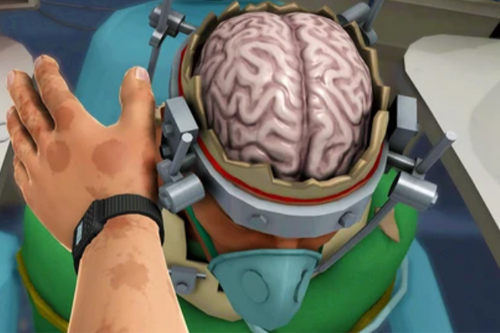
Brain Specialist
If you’re searching for a highly skilled and experienced brain specialist in Dr. Ritesh Nawkhare, you’ve come to the right place. Dr. Ritesh Nawkhare is a renowned neurologist and brain specialist with years of expertise in diagnosing and treating complex brain-related conditions. Whether you’re dealing with neurological disorders, headaches, strokes, epilepsy, or other brain-related issues, Dr. Ritesh Nawkhare offers compassionate care and advanced treatment options tailored to your needs.
What is a Brain Specialist?
A brain specialist is a medical professional who specializes in diagnosing, treating, and managing disorders related to the brain and nervous system. These specialists have extensive training and expertise in understanding the complexities of the brain, spinal cord, and peripheral nerves. They play a crucial role in helping patients with neurological conditions, mental health disorders, and other brain-related issues.
Types of Brain Specialists
Neurologists: These doctors specialize in diagnosing and treating neurological disorders such as epilepsy, stroke, multiple sclerosis, and Parkinson’s disease. They use a variety of diagnostic tests and treatments, including medications and non-surgical therapies.
Neurosurgeons: Neurosurgeons are trained to perform surgical interventions on the brain and nervous system. They treat conditions like brain tumors, traumatic brain injuries, and severe cases of epilepsy.
Psychiatrists: Psychiatrists focus on mental health disorders such as depression, anxiety, bipolar disorder, and schizophrenia. They use a combination of medications, psychotherapy, and other treatments to manage these conditions.
Neuropsychologists: These specialists assess and treat cognitive and behavioral issues resulting from brain injuries or neurological conditions. They often work with patients who have experienced traumatic brain injuries, strokes, or neurodegenerative diseases.
When to See a Brain Specialist
Common Symptoms and Signs
Headaches and Migraines: Frequent or severe headaches, especially those accompanied by other symptoms like vision changes or nausea, may require evaluation by a neurologist.
Memory Loss and Cognitive Decline: Persistent memory problems, confusion, or difficulty concentrating could be signs of conditions like Alzheimer’s disease or other forms of dementia.
Seizures and Epilepsy: Experiencing seizures, which can range from mild to severe, is a clear indication to see a neurologist.
Movement Disorders: Tremors, muscle weakness, or difficulty with coordination and balance may be symptoms of Parkinson’s disease or other movement disorders.
Mental Health Issues: Persistent feelings of sadness, anxiety, or other mental health concerns should be addressed by a psychiatrist.
Conditions Treated by Brain Specialists
Neurological Disorders
- Stroke: A stroke occurs when blood flow to brain is interrupted, leading a brain cell damage. Neurologists and neurosurgeons play key roles in stroke management and recovery.
- Alzheimer’s Disease and Dementia: These conditions involve progressive memory loss and cognitive decline. Neurologists and neuropsychologists work together to manage symptoms and slow progression.
- Parkinson’s Disease: This neurodegenerative disorder affects movement and is managed by neurologists, often with medications and therapies.
- Multiple Sclerosis: An autoimmune disease that affects the central nervous system, multiple sclerosis is treated by neurologists using a combination of medications and therapies.
- Brain Tumors: Both benign and malignant brain tumors require the expertise of neurosurgeons and oncologists for treatment, which may include surgery, radiation, and chemotherapy.
Mental Health Disorders
- Depression and Anxiety: Psychiatrists use medications, psychotherapy, and other treatments to manage these common mental health conditions.
- Bipolar Disorder: This condition involves mood swings between depression and mania and is managed by psychiatrists with mood stabilizers and therapy.
- Schizophrenia: A severe mental health disorder characterized by hallucinations and delusions, schizophrenia is treated with antipsychotic medications and therapy.
Why Choose Dr. Ritesh Nawkhare as Your Brain Specialist?
Expertise in Neurology
Dr. Ritesh Nawkhare specializes in neurology, focusing on the diagnosis and treatment of disorders affecting the brain, spinal cord, and nervous system. His extensive knowledge and experience make him a trusted name in the field.
Comprehensive Care
- Migraines and chronic headaches
- Epilepsy and seizure disorders
- Stroke and cerebrovascular diseases
- Parkinson’s disease and movement disorders
- Memory disorders like Alzheimer’s and dementia
- Multiple sclerosis and other autoimmune neurological conditions
State-of-the-Art Diagnostics
Dr. Ritesh Nawkhare utilizes cutting-edge diagnostic tools and techniques to accurately identify brain-related issues. This ensures that patients receive the most effective treatment plans.
Patient-Centered Approach
Dr. Nawkhare believes in building strong doctor-patient relationships. He takes the time to listen to your concerns, explain your condition, and guide you through every step of your treatment journey.
Positive Patient Outcomes
With a track record of successful treatments and satisfied patients, Dr. Ritesh Nawkhare is a trusted name for brain health in the region.
Treatment Options
Medications
Brain specialists prescribe a variety of medications to manage neurological and mental health conditions. These may include anticonvulsants for epilepsy, antidepressants for depression, and antipsychotics for schizophrenia.
Surgical Interventions
Neurosurgeons perform surgeries to remove brain tumors, treat traumatic brain injuries, and manage severe cases of epilepsy. Advances in minimally invasive techniques have improved outcomes and reduced recovery times.
Therapies
- Physical Therapy: Helps patients regain mobility and strength after neurological injuries or surgeries.
- Occupational Therapy: Assists patients in relearning daily activities and improving fine motor skills.
- Speech Therapy: Addresses speech and language difficulties resulting from brain injuries or strokes.
Lifestyle Changes and Preventive Measures
Maintaining a healthy lifestyle is crucial for brain health. Regular exercise, a balanced diet, mental stimulation, and stress management can help prevent or slow the progression of many brain disorders.Contact Us
Conclusion
The brain is a vital organ that requires careful attention and care. Understanding the role of brain specialists and knowing when to seek their expertise can make a significant difference in managing and treating brain-related conditions. By staying informed about brain health, adopting preventive measures, and seeking timely medical advice, you can ensure optimal brain function and overall well-being..Schedule your Consultation with Dr. Ritesh Nawkhare
